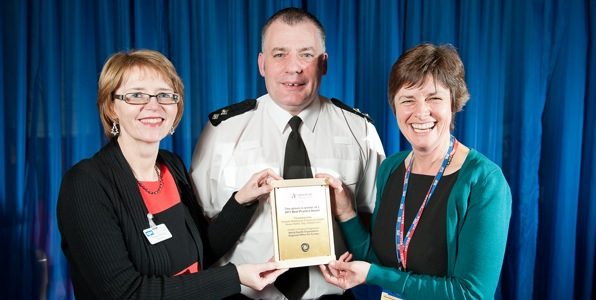Improving Prison Menus
Scotland’s prison population are now enjoying a healthier diet, thanks to the work of an NHS Forth Valley senior dietitian Shona Robertson.
Shona, together with Scottish Prison Service catering managers, has helped establish a national recipe data base for the country’s 13 publicly-managed jails. And feedback so far has revealed that prisoners’ dietary tastes are changing, with more opting for nutritional food such as pasta and rice-based dishes, with women in particular going for lighter meals such as salads.
Shona’s work with the Government-funded initiative has now been recognised with the presentation of a World Health Organisation award at Cornton Vale prison near Stirling.
“It has been a tremendous privilege to receive international recognition for my work. This has certainly been a challenging project as food assumes such enormous importance with the prisoners. “
NHS Forth Valley head of dietetics, Morag Mackellar added:” NHS Forth Valley dietitians have a long history of working with the Scottish Prison Service both locally and nationally to help improve nutrition. I am delighted that Shona’s work has been recognised as an example of best practice by taking a prison-wide approach.”
Each recipe has been analysed for nutritional value and colour coded in accordance with the Food Standards Agency labelling guidance. Prisons gradually began incorporating the recipes into their menus from May 2010.
Lesley McDowall, Clinical Advisor Scottish Prison Service explained: “Prisoners have a variety of health needs. The majority smoke, some have drug problems and a significant number have mental health issues. Many lead chaotic lifestyles and do not regard healthy eating as important. The Scottish Prison Service believes that an improvement in nutritional intake will contribute to better health and wellbeing, address health inequalities and help cut the rate of re-offending.”
Shona’s previous work in Scottish prisons has included helping prisoners at Polmont Young Offenders Institution to learn cooking skills to help them cope more easily when they return to the community.


